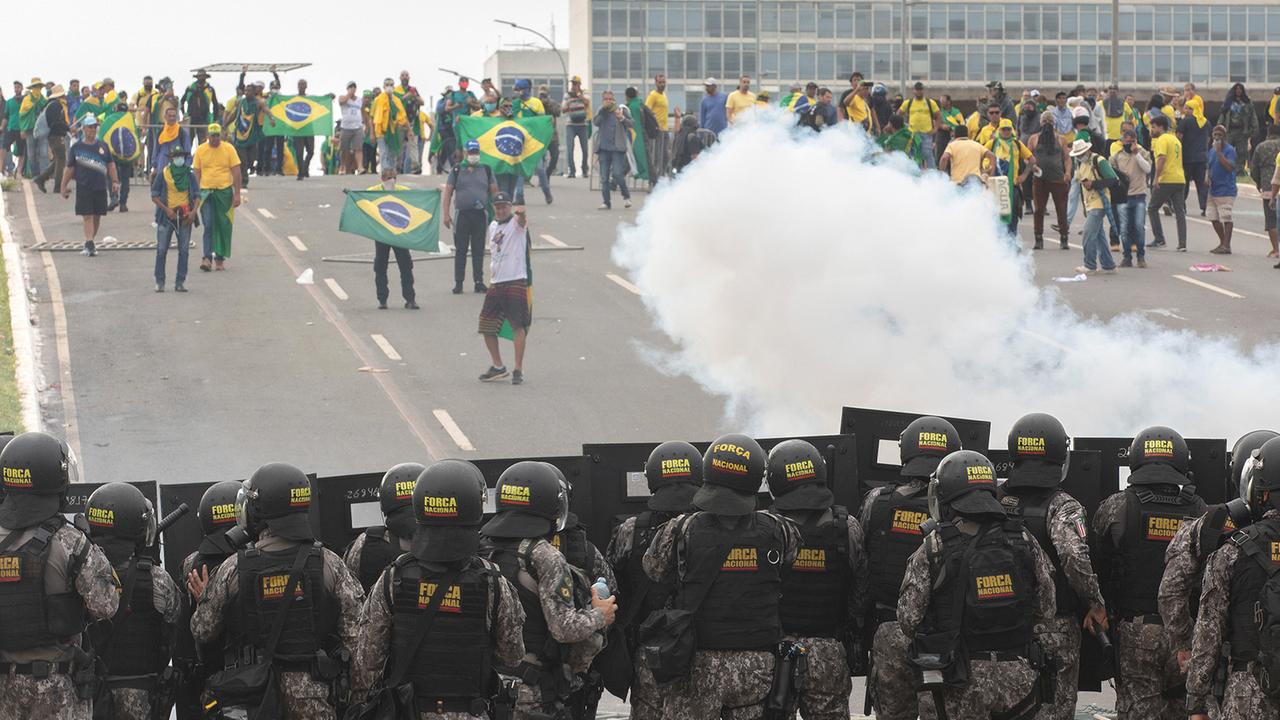Brazil has had a left-wing president in Lula da Silva since January, but the legacy of his far-right predecessor Bolsonaro is still having an impact. The number of neo-Nazi groups in the country has increased significantly.
It is early June when the federal police begin operations against a neo-Nazi group in Sao Paulo and Petrolina (Pernambuco state).
The men are accused of sharing hate speech on social media, spreading violent videos and instructions on how to use explosives, even killings.
The neo-Nazis are suspected of inciting a youth to go on a killing spree at a school last November. Four people died at the time and 13 were injured. The investigators apparently found material from the group in the perpetrator’s smartphone.
The place of radicalization: the Internet
“The ‘deep web’, messenger services and social media have become a worrying place for radicalization,” confirms Guilherme Franco de Andrade, a specialist in neo-Nazism at the State University of Mato Grosso do Sul.
Although radicalization on the Internet is a global phenomenon, Brazilians are particularly Internet-savvy and therefore great vigilance is needed here for the problem.
Significantly more acts of violence
According to a study from last year, the number of neo-Nazi cells in Brazil has skyrocketed: in 2015 there were 75, by the end of 2021 there were said to be 530. It could be around 10,000 neo-Nazis.
The study comes from anthropologist Adriana Dias, who died in January and was considered one of the greatest experts in the field. She comes to the conclusion that the right-wing extremist cells are fueling hatred against vulnerable groups, especially on the Internet: women, blacks, indigenous people, among others.
Bolsonaro’s legacy
The surge in neo-Nazi cells coincides with the tenure of former, far-right President Jair Bolsonaro, whose ties to neo-Nazis Dias believed were proven.
“Bolsonaro’s tirades legitimized hate speech and made right-wing ideas socially acceptable,” concluded the late anthropologist, who spent 20 years researching hate speech and right-wing extremism.
The roots go deeper
The historian Guilherme Franco de Andrade explains that since the year 2000 there has been an increasingly right-wing conservative development in parts of the population.
That was a reaction to the fact that Brazil’s voters had elected Lula da Silva, a left-wing president, for the first time in 2003. After that, the fear of communism, which had to be defeated, was fueled by right-wing forces, according to the extremism expert.
A deep chasm
In addition, Brazil is deeply divided, not only politically but also economically. In recent years, prosperity in the country has declined and inequality has increased.
Inflation rose sharply during the pandemic – and so did the fear of social decline. Corruption affairs fuel massive doubts about the political class and thus about democracy.
Bolsonaro as fire accelerant
“The neo-Nazis didn’t first appear in Brazil because of Jair Bolsonaro, but he fueled the mood. His speeches undermined trust in democratic institutions, in the judiciary, the electoral system, political competitors. He agitated against minorities. He has prepared fertile ground for right-wing extremist ideology overall,” says Franco de Andrade.
Thanks to Bolsonaro, ultra-conservative politicians entered parliament on an unprecedented scale in the last parliamentary elections. Their policy is consistently directed against the rights of minorities.
This also shows how politically divided the country with its 215 million inhabitants is.
worries and hopes
Franco de Andrade considers the development to be worrying, also because of the spread of extremist ideas via the Internet.
But one thing is important, he emphasizes: Anyone who supports Bolsonaro is not automatically a right-wing extremist. And so far, the number of right-wing extremists in relation to the population is far from sufficient for a fundamental political change.





